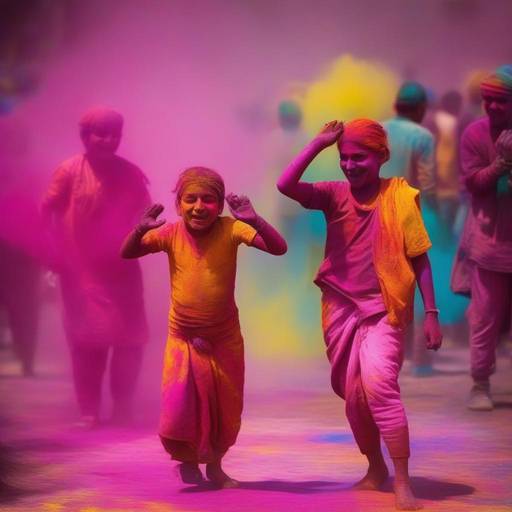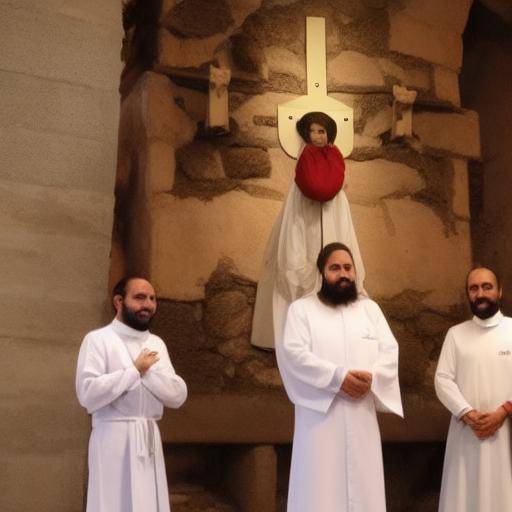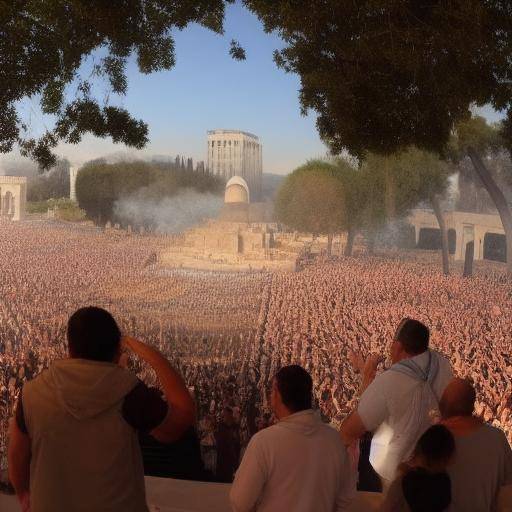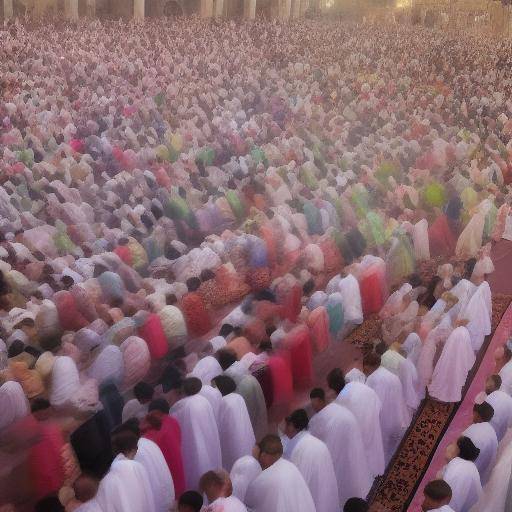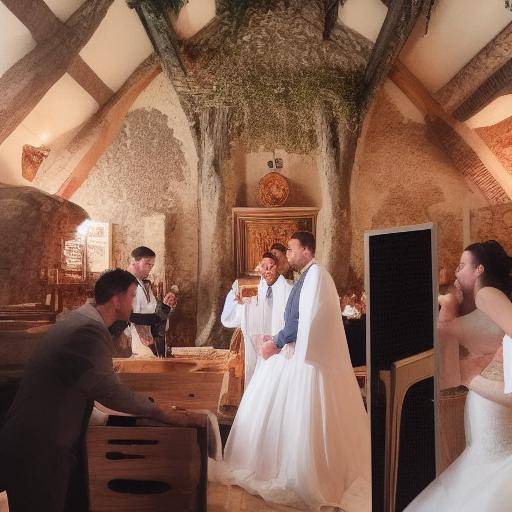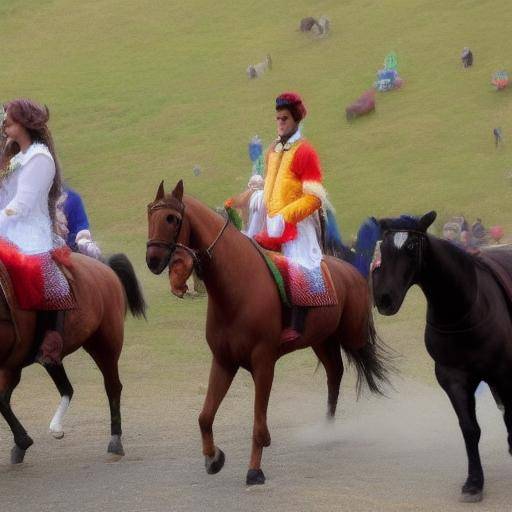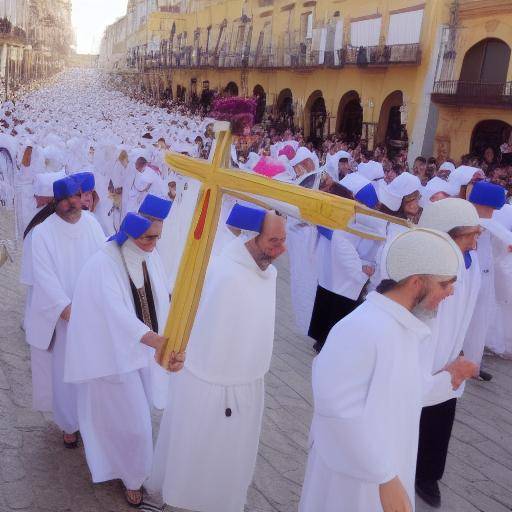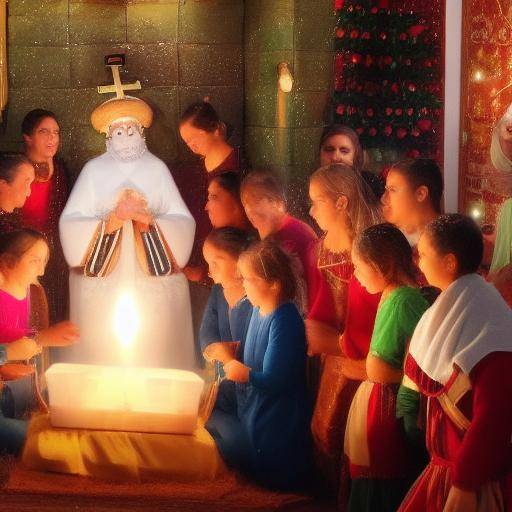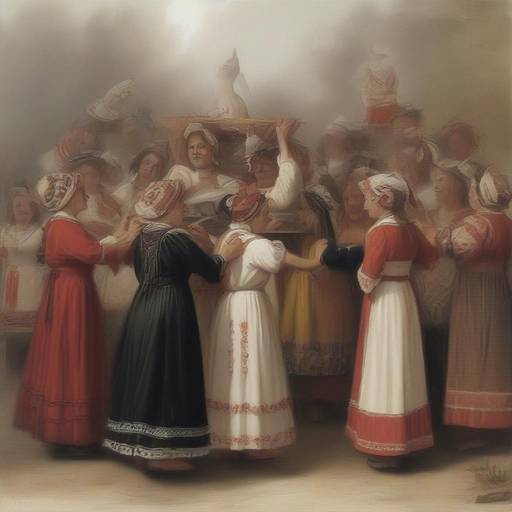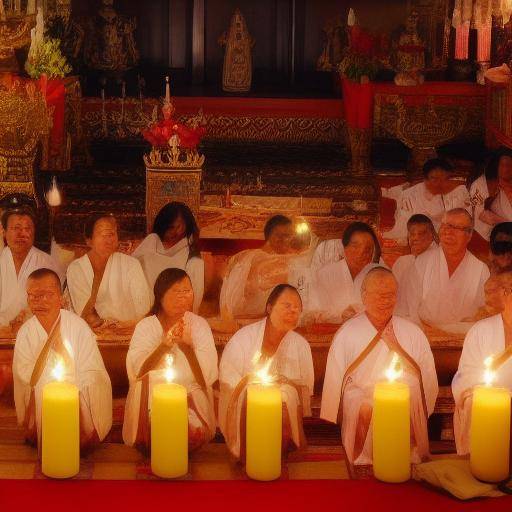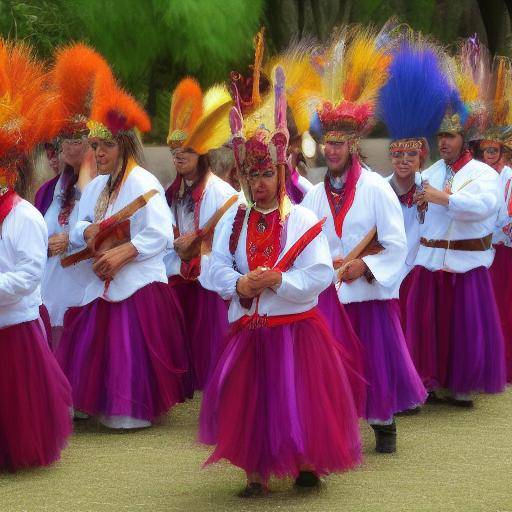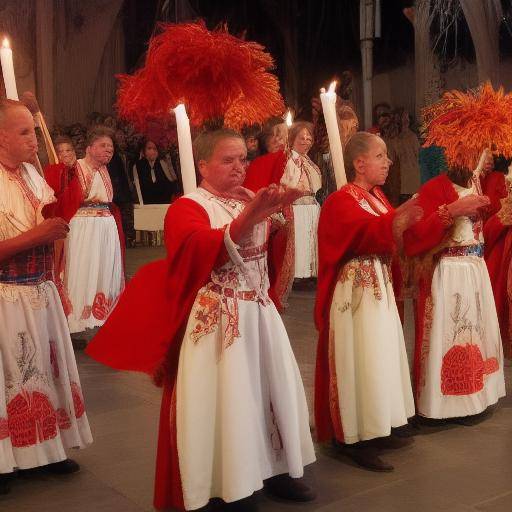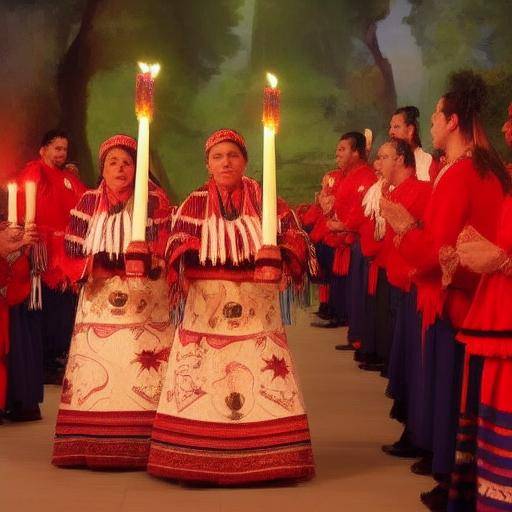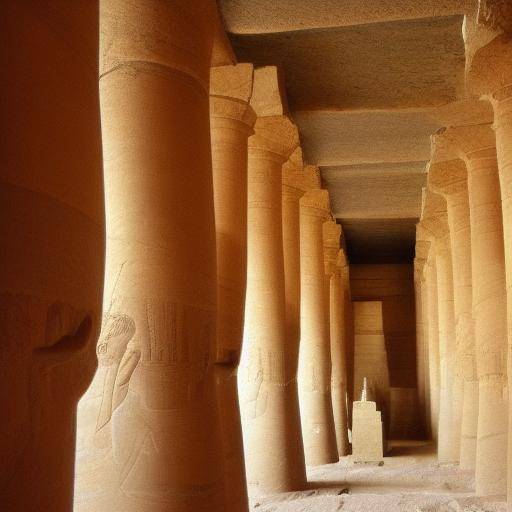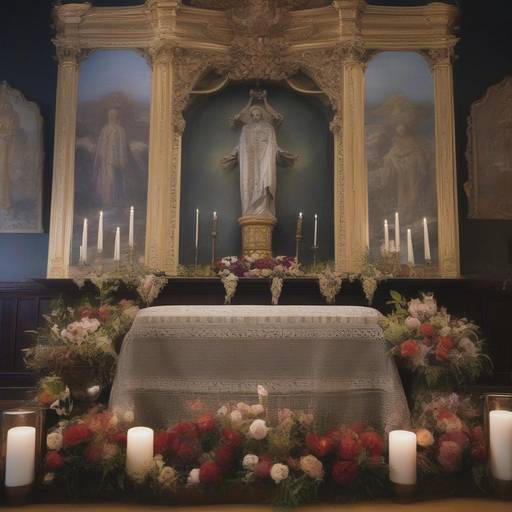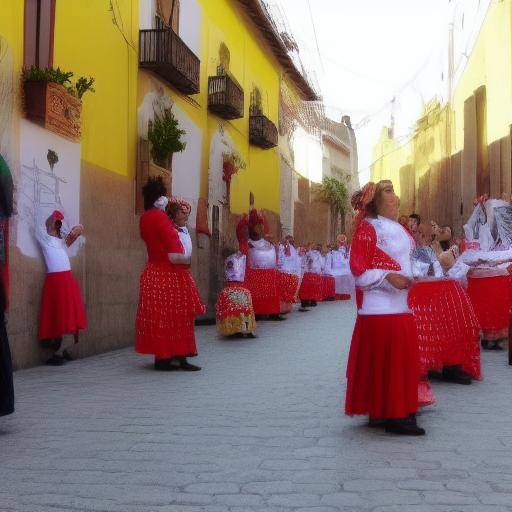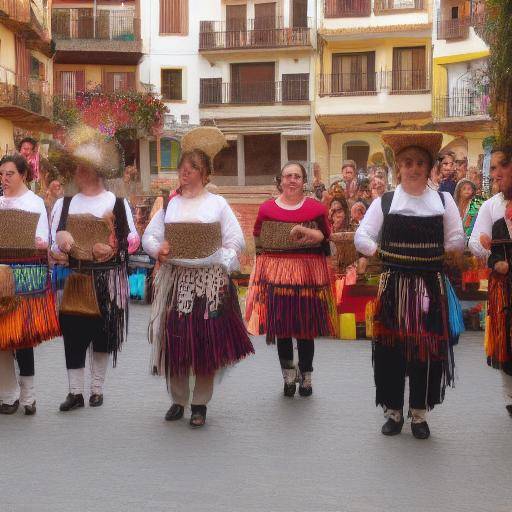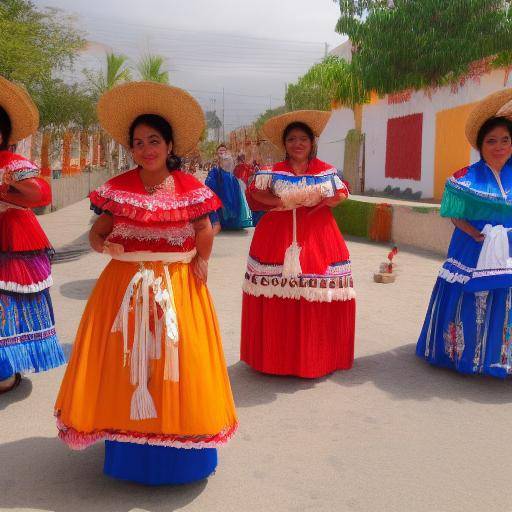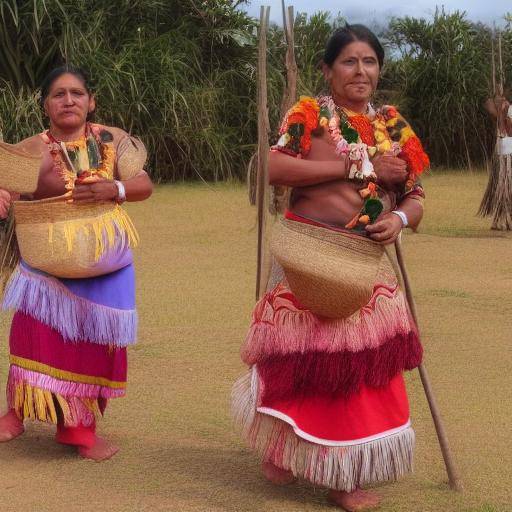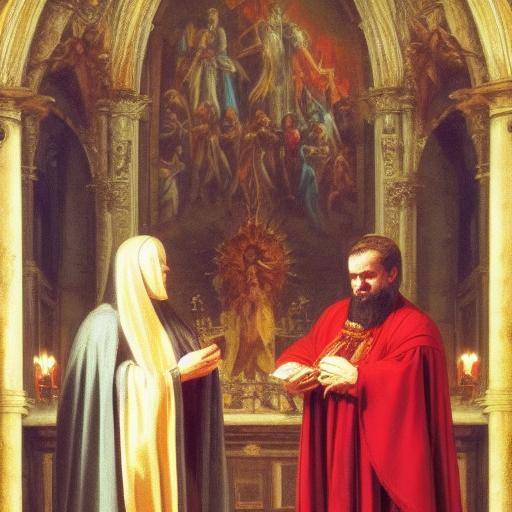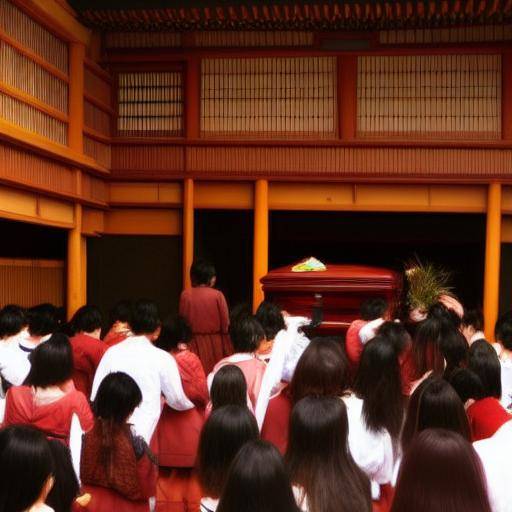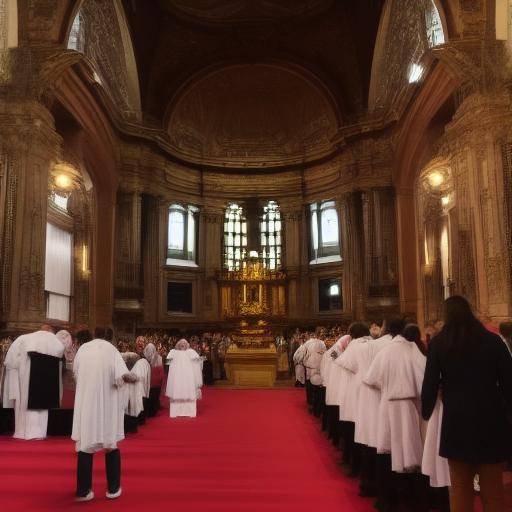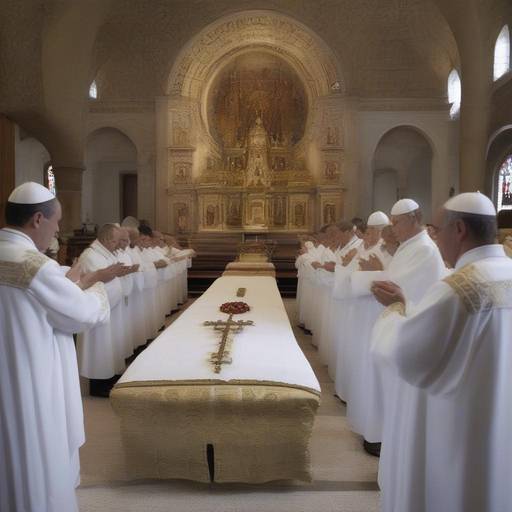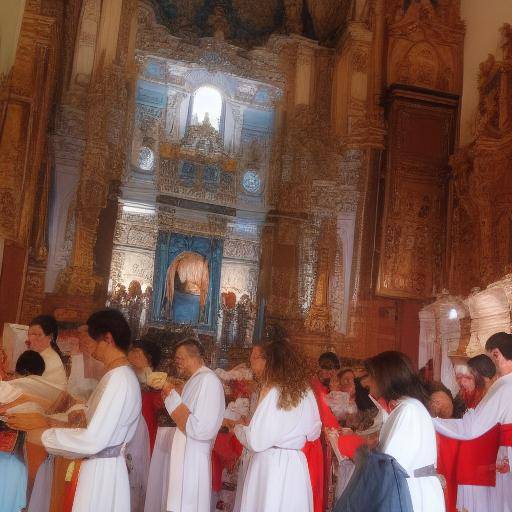
The day of Saint John is a celebration rooted in the Hispanic culture, full of traditions and rituals that have endured over time. This festival, which commemorates the birth of St.John the Baptist, is celebrated in different ways throughout the Spanish-speaking world, with religious festivals, significant rituals and unique customs. In this article, we will explore in depth the importance and significance of the celebration of St.John's Day, as well as the traditions and rituals surrounding it. From its history and evolution to its impact on today's society, we will examine every facet of this holiday, offering a detailed look at a crucial aspect of Hispanic culture.
History and Background
The celebration of St. John's Day has its roots in a confluence of Christian and pagan traditions, which gives it a rich history and symbolism. Its origin dates back to the first centuries of Christianity, when it was established as a feast to commemorate the birth of John the Baptist, the cousin of Jesus. However, the influence of pre-existing pagan beliefs in Europe was also intertwined with festivities, leading to ritual practices that are still ongoing.
During the Middle Ages, the celebration of St.John's Day was merged with ancient pagan rituals related to the summer solstice, becoming a holiday that marked the beginning of the summer, the fertility of the earth and the renewal of life. This syncretism between the religious and pagan traditions gave rise to many of the practices and rituals that are currently being carried out, giving the festive a profound and diverse meaning.
Analysis in Deep
Today, the celebration of St.John's Day remains one of the most significant festivities in Hispanic culture, with a variety of traditions and rituals that vary according to the region. From bonfires and ritual baths at sea to the preparation of traditional meals and the realization of folk dances, each community brings its own set of customs that enrich this holiday.
In addition to its cultural importance, the day of San Juan has also acquired relevance in areas such as tourism and the local economy. In many places, the festival attracts visitors from around the world, generating a significant boost for the tourism industry and local crafts. However, this popularity has also posed challenges in terms of conservation and preservation of original traditions, as well as in the sustainable management of natural resources used during the celebration.
Comprehensive review
Despite the diversity of traditions and rituals associated with St.John's Day, this holiday shares a sense of community and connection with nature that transcends borders. The realization of rituals such as hoses or sea offerings not only reflects ancestral beliefs, but also represents the desire for renewal and purification that accompanies the beginning of the summer.
At the same time, the celebration of St. John's Day raises questions about the preservation of traditions in a constantly changing world. The influence of globalization and modernization has led to adaptations in both practices and the way in which this festival is perceived and celebrated. As communities seek to keep alive the essence of St.John's day, they face the challenge of balancing the preservation of traditions with the need to adapt to a changing environment.
Comparative analysis
St. John's day shares similarities with religious festivals of other cultures, as well as pagan celebrations that mark the summer solstice in different parts of the world. This intersection of traditions offers the opportunity to compare and contrast the rituals and customs associated with St.John's Day, enriching our understanding of its significance and relevance.
While in some cultures the summer solstice is celebrated with rituals focused on the worship of the sun or the connection with nature, the day of St.John is distinguished by its unique fusion of Christian and pagan elements. This combination has led to a celebration that incorporates both religious and secular aspects, making it attractive to people with different cultural backgrounds and beliefs.
Practical Tips and Recommendations
If you are interested in participating in the celebration of St.John's Day, here are some practical tips that can help you:
- Investigate local traditions: Each region has its own customs and rituals associated with the day of San Juan. Learning about these traditions will allow you to participate more significantly in the celebration.
- Participate with respect: If you decide to join a celebration of San Juan Day, respect local traditions and follow the directions of the organizers to ensure a safe and respectful experience.
- It contributes to the preservation of traditions: Consider supporting local artisans or community groups that work to preserve the traditions associated with the day of San Juan.
Conclusions and FAQs
In conclusion, the celebration of St. John's Day is much more than a religious festival. Its traditions and rituals reflect a deep connection with nature and a rich cultural heritage that is still alive today. As this holiday continues to evolve, it is essential to preserve its authenticity and meaning for future generations.
Now, we answered some frequent questions about St. John's Day:
What is the meaning of jumping the bonfires during the celebration of St.John's Day?
The act of jumping the bonfires during St.John's day has ancient roots and symbolizes purification and renewal. According to tradition, jumping on the flames will purify the body and spirit, thus protecting the person from diseases and dangers.
What is the origin of the tradition of bathing in the sea during the day of San Juan?
The ritual bath at sea during the celebration of St.John's day has its origins in ancient pagan beliefs related to purification and renewal. It is believed that bathing in the sea on this special date protects against evils and diseases, and gives health and prosperity.
How is Saint John's Day celebrated in different Spanish-speaking countries?
The celebration of St.John's Day varies according to the region, but usually includes bonfires, ritual baths, special meals and festive activities. Each country brings its own unique traditions and rituals to this festival.
What is the role of religious traditions in the celebration of St. John's Day?
Although the festival originated as a religious celebration, many of the traditions associated with St.John's Day have their roots in ancient pagan beliefs. The coexistence of religious and secular elements has enriched the celebration, making it accessible to people of different backgrounds.
What is the economic impact of the celebration of San Juan Day in local communities?
The celebration of San Juan Day can have a significant impact on local communities, driving tourism and generating economic opportunities for local artisans and sellers. However, it also poses challenges in terms of sustainable management of natural resources and preservation of original traditions.
How can I participate in the celebration of St. John's Day if I am not in a Spanish-speaking country?
If you are not in a Spanish-speaking country, you can search for local events or groups that organize celebrations of San Juan Day. Many communities around the world participate in this holiday, offering the opportunity to experience their traditions and rituals.
With this, we concluded our exploration of the celebration of St. John's Day, its traditions and rituals. We hope that this article has provided a deeper and more meaningful understanding of this unique and traditions-rich holiday. The celebration of St. John's Day continues to be a source of connection, community and renewal for people who celebrate it throughout the Spanish-speaking world. May her spirit of joy and renewal endure over the years, enriching the lives of those who participate in it.
Remember that St.John's Day is a festival full of traditions, rituals and symbolisms that continue to evolve over time. If you have more questions about this celebration or are interested in exploring your traditions in greater depth, do not hesitate to search for more information and participate in local holidays if you have the opportunity.

